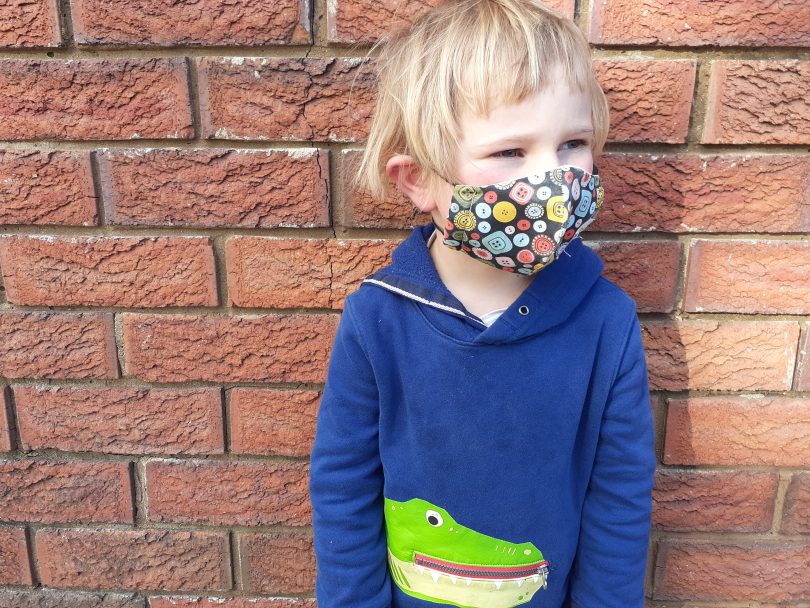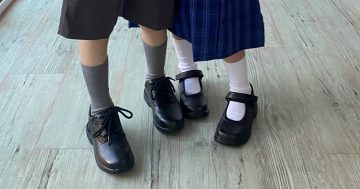
Teaching kids about being COVID-19 aware. Photo: Elka Wood.
I’ll never forget being in a Los Angeles airport bathroom with my son, then about 18 months old, and turning to see him lovingly running his tongue across the sink which approximately 400 people had touched since it was last cleaned.
This was well before COVID-19 hit, but the memory still makes me wince, as does the thought of the stomach bug we all got after that flight.
It was pretty soon after that we implemented a hand-washing routine whenever we got home, but not before we all picked up hand, foot and mouth disease and a few other wonderful childhood illnesses.
I really feel for parents of babies and very small children during the COVID-19 pandemic because it is close to impossible to keep things clean with kids that age and mouth exploration being a natural part of their development.
Although my kids are older now [eight and five] I still struggle to impress upon them the importance of not touching everything when we’re out and about.
Kids are tactile. So how do we help them navigate a pandemic?
Hygiene is important – and frustrating – but we also need to find ways of talking about it with the kids in our lives in an age-appropriate way.
While adults are up to speed on minute-by-minute developments of how COVID-19 spreads and where each outbreak is located, it can be hard to know how much, and when, to talk to kids about big, difficult topics such as this, especially when there’s still so much we don’t know.
As parents, our tactic has been to talk about the pandemic only when there’s a physical boundary that needs to be explained – “You must sanitise your hands before we go to the cafe to get a smoothie” – or when the kids ask questions.
Our daughter, aged five, demonstrates the factual, morbid curiosity that is typical of the age.
“Grandpa will probably die if he gets coronavirus because he is super old,” she says, delighted.
She was less impressed when she could only invite two friends and their families to her fifth birthday party in May.
With these kinds of disappointments or the inconvenience of having to wash your hands again, I think it’s really important to remember how adaptable kids are.
As adults, we’ve had 20, 30 or 60 years without COVID-19 so the whole thing can be pretty jarring, but for a five-year-old the boundaries that come as a result of the pandemic are no different to all the other crazy rules in this world.
Even in the most extreme cases, kids have a tendency to rise to the occasion.
For parents, it can be more of a challenge, as it was for a friend who recently flew back home to Sydney from the US with her toddler son and then quarantined, alone, for two weeks in a hotel.
“What did you do?” I asked, aghast at the thought of being alone with a toddler for that long and unable to go outside.
“We ran laps of the room, we went out on the balcony and looked, we read so many books and had dance parties,” she replied. “We had a bath or two each day and played in the water. It really wasn’t bad.”
The fact their quarantine went so well is a credit to this mother’s strength and relaxed attitude.
I picture myself in the same situation and assume I would be climbing the walls after two days. Then again, perhaps I would surprise myself because when it comes to our children, we parents have deep wells of patience and strength we’d never discover if not for situations such as this.
When I saw my friend a week or so, after they got out of quarantine, she showed me a montage of video she’d made of the experience. There were clips of her toddler, naked in front of the hotel fridge, turning the light on and off, watching a Black Lives Matter rally from the balcony and strumming happily on the ukulele she’d packed.
The last image was her toddler running down the street upon their release. He runs up to a shop window where a mannequin of a child is displayed and puts his hands on the window as if to finally greet a playmate.
It’s a little heartbreaking.
I don’t know for sure but I think he was licking the glass.








